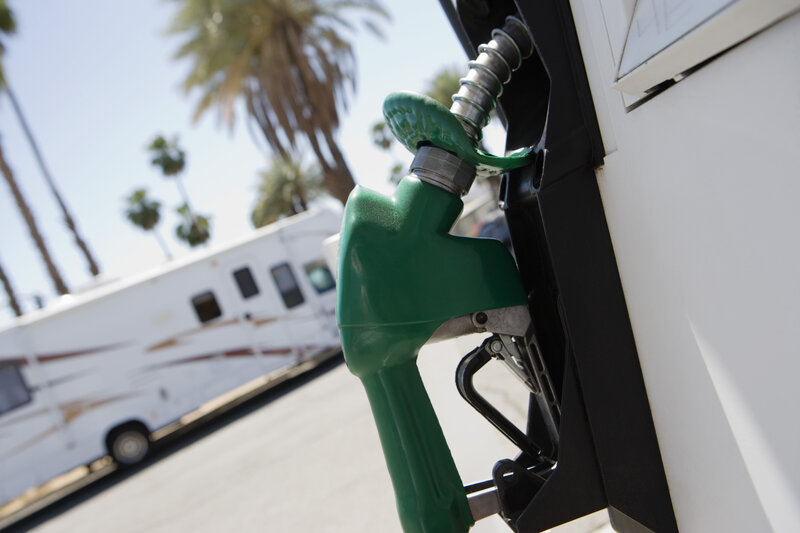We’ve all been there—the momentary lapse in judgment at the fuel pump, distracted by a phone call or lost in thoughts about the day ahead. But what if this mundane task morphs into a nightmare? What happens if you put gas (or gasoline) in a diesel engine? It’s a fuel mix-up that can turn a simple fill-up into an engine catastrophe. Let’s dive deep into this perplexing scenario and explore the aftermath of this fuel faux pas.
First things first: understanding the fundamental differences between gasoline and diesel fuels is essential. While both are derived from crude oil, their chemical compositions and combustion characteristics differ significantly. Diesel fuel is thicker, oilier, and contains more energy per gallon than gasoline. It’s ignited by heat and compression in a diesel engine, whereas gasoline relies on a spark from the spark plugs to ignite. This fundamental difference lays the groundwork for the chaos that ensues when the two are unknowingly mixed.
Imagine the scene: you’ve just filled your tank, but as you pull away, a nagging thought creeps in—did I just fuel my diesel engine with gasoline? A surge of panic might set in as you contemplate the impending doom. So what actually unfolds in this scenario? Let’s take a closer look!
First, the immediate consequences: introducing gasoline into a diesel engine can lead to a variety of problems. When diesel fuel enters the engine, it lubricates essential components like the fuel pump and injectors. Gasoline, however, lacks this vital lubrication. This absence can result in wear and tear of these components. The fuel pump may overheat and fail, leading to costly repairs and potential vehicle immobilization.
Next, consider the combustion process. When gasoline enters the diesel engine, it can ignite prematurely due to the high compression ratios present in these engines. This phenomenon, known as pre-ignition, can lead to knocking or detonation. Such scenarios can cause further damage, ranging from bent rods to catastrophic engine failure, resulting in a hefty repair bill that can make anyone’s wallet cringe.
But let’s not forget the broader implications of a fuel mix-up. Depending on the amount of gasoline that inadvertently mixes with the diesel, the consequences can vary significantly. A small amount may lead to reduced performance and efficiency, while larger volumes can significantly impair engine function. Transitions from smooth operation to rough idling can occur almost instantaneously. Your once-reliable vehicle becomes an unpredictable beast, one that demands immediate attention.
The next critical consideration arises: what should you do if you find yourself in this unenviable predicament? First, avoid starting the engine—this is pivotal. The moment the engine fires up, the damage begins. If you realize the mix-up before initiating ignition, take a deep breath and assess your situation.
To remedy the situation, consider contacting roadside assistance or a professional mechanic to drain the tank. This process involves removing the contaminated fuel and replacing it with the proper diesel. A fuel system cleaning may also be necessary to flush out any remnants of gasoline lingering in the system, ensuring that your engine returns to optimal function.
Moreover, understanding preventive measures is integral to avoiding such mishaps. Familiarize yourself with your fuel options and, whenever possible, inspect the fuel nozzle before filling up. This vigilance might spare you from encountering a painful repair saga. Investing in distinctive fuel caps and personalized labels can further serve as helpful reminders about which fuel your vehicle requires.
But let’s pause and ponder a question—what if your vehicle could talk? Imagine it pleading, “Please, let’s not mix fuels!” Injecting a playful mindset into this scenario underscores the importance of awareness and care during routine maintenance tasks.
Continuing with the narrative, let’s explore the potential outlook if left unaddressed. If gasoline contaminates a diesel engine and shows no signs of immediate intervention, the vehicle’s performance degrades further. Engine stalling becomes a common occurrence, and you may find yourself grappling with decreased power and efficiency. Wheel spinning in vain as the vehicle struggles to push forward can be infuriating, not to mention inconvenient.
The emotional toll of such a mix-up shouldn’t be discounted, either. The blend of frustration, embarrassment, and the looming threat of costly repairs creates a unique cocktail of stress. Ultimately, it serves as a reminder—our vehicles require attention and care, and even the most mundane tasks can carry weighty consequences.
In closing, while a fuel mix-up can seem trivial, it’s crucial to grasp the expansive repercussions that follow. From engine damage to the significant financial burden of repairs and the psychological turmoil of realizing such a mistake, the stakes should never be underestimated. So, the next time you approach that pump, take a moment to check. Your engine will thank you, and you’ll save yourself the headache of navigating the labyrinth of a fuel-related crisis!
